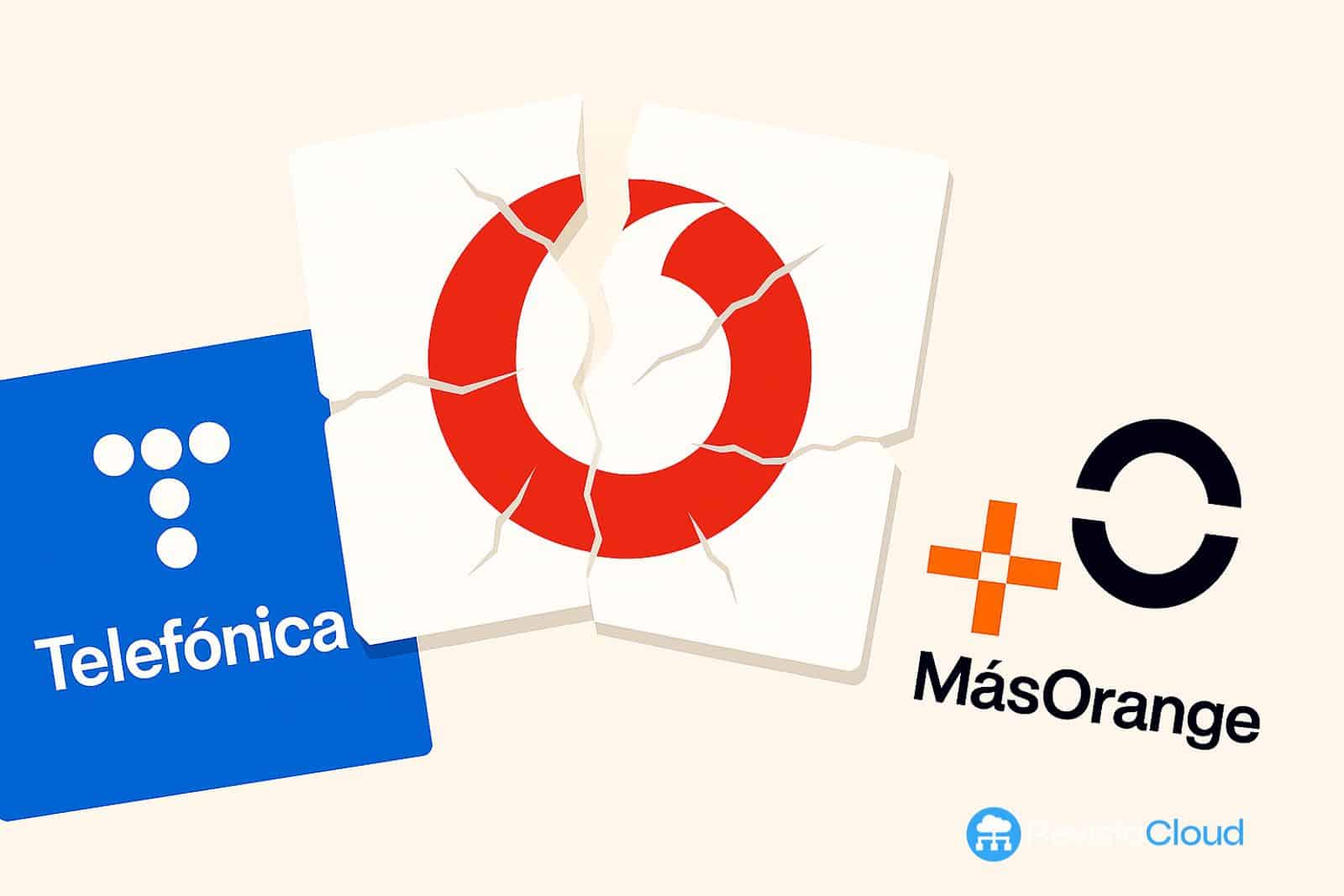Sure, here’s the translation:
The Spanish telecommunications market is once again at the center of speculation following reports that Telefónica and MásOrange have held informal talks to reach a potential agreement that would allow them to jointly acquire Vodafone España and share its assets. According to sources cited by Bloomberg and other specialized media, the companies are exploring different scenarios to consolidate the sector and address the challenge of profitability in an increasingly competitive environment.
A Market in Full Consolidation
Since Zegona acquired Vodafone España at the end of 2023 for around 5 billion euros, the British operator has sought ways to streamline its operations and maximize the value of its assets ahead of a future sale. In this context, Telefónica and MásOrange, the largest operator by number of customers following the merger of MásMóvil and Orange in 2024, have initiated discussions to analyze a joint operation.
The proposed agreement would involve dividing Vodafone’s operations between the two partners: fixed network, mobile, and enterprise segments could be allocated to avoid possible regulatory obstacles and prevent competition issues. MásOrange has also shown interest in acquiring Lowi, Vodafone’s low-cost brand, thereby strengthening its portfolio of offerings in a highly fragmented market for economical plans.
A Precedent in the Brazilian Market
The idea of a joint acquisition is not new for Telefónica. In 2020, the Spanish multinational participated, along with two other competitors, in the purchase and sharing of assets from the operator Oi in Brazil. This precedent allowed them to obtain regulatory approval by arguing that the distribution of assets would strengthen national operators and contribute to the sustainability of the sector.
Pressure for Profitability and Competition
The Spanish market has experienced an especially intense price war in recent years, particularly in the low-cost segment, where customers frequently switch between operators in search of the best deals. The consolidation between MásMóvil and Orange did not significantly reduce competition, and the emergence of new players like Digi continues to apply pressure to the sector’s margins.
For any operation of this magnitude, financing and compliance with regulatory requirements will be the main challenges. Telefónica, for instance, is currently at the investment-grade threshold in its credit rating and has stated that it will not jeopardize its financial profile. However, cited sources indicate that creative financial structures could be explored to make the agreement feasible.
Reconfiguration of the Sector: Towards a New “Three Musketeers”
If the operation proceeds, the Spanish market would revert to a structure of three dominant operators—known as the “three musketeers”—with Digi positioned as the third competitor in the new landscape. For Telefónica and MásOrange, the allocation of Vodafone’s assets would strengthen their position against the challenges of investment and profitability while eliminating a significant rival in the country.
So far, there are no formal proposals or guarantees that negotiations will materialize, but the possibility of such a significant move marks the beginning of a new phase in the consolidation of the telecommunications market in Spain. The evolution of the discussions will largely depend on the willingness of regulators and the ability of operators to design a deal that overcomes the challenges of competition and financing.
In short, the potential acquisition and division of Vodafone España by Telefónica and MásOrange could reshape the landscape of Spanish telecommunications in the coming years, returning the sector to a more concentrated structure and opening a new cycle in the race for profitability and innovation.
Sources: La República, Yahoo Finance

